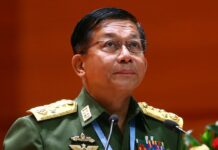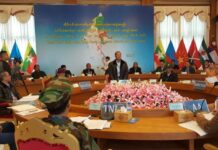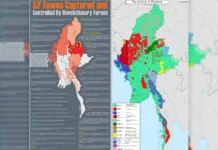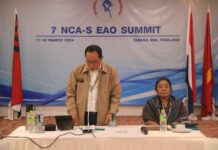A Malaysian-based Burmese academic, speaking at the Chiangmai University’s Faculty of Social Sciences, on Wednesday (2 September), told his audience he didn’t think Burma’s military was in a hurry to leave the country’s political stage.

“No way,” Dr Myint Zan said in response to a student’s query. “But I hope we don’t have to wait until hell freezes over.”
The professor of the Faculty of Law, Multimedia University, from Melaka (Malacca) who finished his doctorate in Australia, was giving a lecture under the heading “A (Past-Oriented?) Glimpse of Some Aspects of Burma/ Myanmar Ethnic Conflicts.”
He nevertheless was “cautiously optimistic” about the ongoing democratic transition in his home country.
Touching on the well-known ethnic call for federalism that had prompted the late Gen Ne Win to take over the whole country under military rule on 2 March 1962, he recalled what the dilapidated former dictator told his colleague U Chit Hlaing on 27 July 1995.
“Had I known (the standard Buddhist teaching on) Anicca (Impermanence), Dukkha (suffering) and Anatta (Non-self), I wouldn’t have done what I had done in 1962.”
The other speaker was Dr. Nehginpao Kipgen, Policy and Research Consultant for Chiangmai-based Ethnic Nationalities Affairs Center (ENAC) and Editor and General Secretary of Washington-based Kuki International Forum, who spoke under the heading ‘Ethnic Minorities and Peace Process in Myanmar.” He is a regular contributor to Thailand’s Bangkok Post.

He was frank when asked by a listener about the Nationwide Ceasefire Agreement (NCA) which was finalized on 7 August and published in government-run media on 18 August, which marked the 4th anniversary of President Thein Sein’s call for peace talks in 2011.
“I’m not sure whether it will be signed before the (November) elections.”
The ethnic armed organizations (EAOs) 5 top leaders are scheduled to meet the President and the Commander-in-Chief on 9 September in Naypyitaw in an effort to clear what is considered the last stumbling block in their negotiations: all-inclusive signing or selected signing. The EAOs are for the former and the government for the latter.
















Leave a Comments